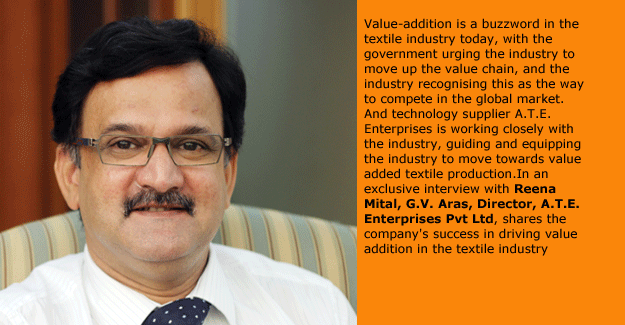InspirOn: India Can Deliver World Class Technology
InspirOn: India Can Deliver World Class Technology

InspirOn is making a huge investment in R&D. Very few Indian companies do this. Why did you feel the need to invest in research and development?
The aim is to develop our own technology, which not many Indian companies have done till now. For this, we need an environment that is separate from the factory environment. So we have identified land around 20 kms from our main manufacturing plant. This will be a large set-up, which will be used by the industry too, for its production and trial runs. This means that a customer who wants to do a finishing job, can bring his chemicals and fabric, and can use our machines.
There are a number of reasons why we want to offer this service to the industry at our R&D lab. Many production units find it difficult to invest in a stenter, in terms of space needed, and the fact that it is cost-effective to invest in a stenter if one can run it continuously over long periods of time. In a fragmented processing industry, this is not possible. So, at our facility, we have on offer the most modern machine, which the industry can use, thus also experiencing how quality can be improved with good technology. We also benefit from this exercise as we can get feedback from customers about their special requirements, which will help us in further developing our products.
In a country where R&D in textile engineering is almost unheard of, how will you find the human resources for your lab?
We have hired a German consultant, who is well versed with this technology, and its developments. Today, we have softwares that allow changes in process parameters and simulation is easy. India is known for its skills in software development and engineering. We are also working with Nirma Institute of Technology, and other Indian companies that offer relevant services. We have a good team of engineers in place.
How do you expect the processing sector in India to progress over the next few years?
I expect good investments coming into the sector. With better income levels and brand consciousness, the market needs high quality fabrics. Processors will have to get organised, and invest in good technologies. But the improvement also needs to happen in weaving, so that fabric quality improves overall.
How does your technology compare with other technologies in India?
Since we started with Monforts, we were already ahead of competition, there are hardly any local suppliers of modern technology. And now having got the German technology, we have improved upon it further. We are way ahead of competition in India, and at par with European makers. This will be confirmed in Milan this year when we see what others have on offer, and receive feedback on our technology.
What are your expectations from ITMA?
At ITMA we want to prove our capability, and convey the message that India can deliver world class technology.
What are your future plans?
Our focus will be to grow in the export markets. In stenters, we want to develop the export markets for our own technology. Besides, we have a world class product - textile flyer. We are a global leader for this product, with almost 65% of our production being exported to OEMs in Europe. We also meet the global replacement demand in countries across the world. However, China has been a somewhat difficult market to enter, as they have their own local suppliers, offering products that are priced quite low. That is changing now. Many European machinery makers have facilities in China, and I believe this is a good time to market aggressively in China.



 textileexcellence
textileexcellence 







